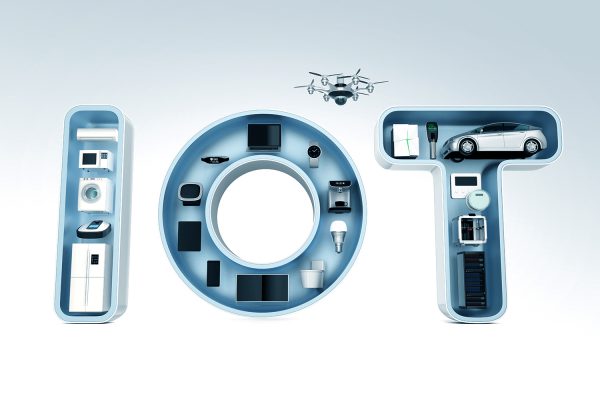The Internet of Things, also known as IoT, broadly refers to anything and everything connected to the internet.
 IoT is increasingly being used to denote the ability to use closed private internet connections to control any device. This includes machines you might not necessarily think of as ‘devices’, such as your washing machine and coffee maker. Connecting sensors in these devices with automated systems enable us to gather information, analyze it, and create a corresponding action. Put simply, it’s about connecting devices to the internet.
IoT is increasingly being used to denote the ability to use closed private internet connections to control any device. This includes machines you might not necessarily think of as ‘devices’, such as your washing machine and coffee maker. Connecting sensors in these devices with automated systems enable us to gather information, analyze it, and create a corresponding action. Put simply, it’s about connecting devices to the internet.
The IoT is already changing the home lives of the rapidly growing number of households who use digital voice assistants, physical one-click purchase buttons, or smart home systems that control not only heating but lighting, electronics, and security alarms. The reach and capacity of these gadgets are set to increase. For example, some washing machines and dishwashers already on the market have the capability to reorder their own supplies built in. The rollout of such devices will allow consumers to save time and stay more in control of their day-to-day.
The IoT is also a vital component of the smart cities revolution, enabling governments, public authorities, and their private sector partners to rethink how they deliver services and manage infrastructure. Instead of collecting trash or repairing roads on a best-guess schedule, automatic sensors could order these services when they need carrying out.
The Internet of Things only works if all these connected objects can speak to one another to share data and instructions. To be able to do that, they need common standards. There is currently an enormous number of IoT-related standards in development. The Internet Society points out that “additional needs are emerging for standardization” in order to get this revolution right. Although the good news is that progress is being made.
The more access these devices have to our lives and our data, the more attractive and vulnerable they become to hackers. The technology needed to hijack IoT devices is developing as fast as the IoT itself. There’s a risk that the security measures built into a gadget when you buy it may quickly become obsolete, even if they were adequate, to begin with. It’s important to do research before you buy – and increased industry-wide regulation may become necessary in the near future.
The IoT will bring additional challenges; but if these are met by manufacturers and savvy consumers, it has the potential to make our lives more productive, creative, and convenient.
GeoTel is the leading provider of telecommunications infrastructure data, including fiber routes and data centers, crucial to keeping the internet of things online. For over sixteen years, GeoTel’s products have been providing companies and government entities with the leverage and insight necessary to make intelligent, location-based business decisions. For more information or a demo, please contact our experts at (407) 788-8888.


